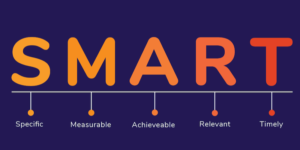The role of accounting function is vital in any organisation, ensuring that financial transactions are accurately recorded, financial statements are prepared in compliance with relevant standards, and management is provided with reliable information to make informed decisions. Accounting is often viewed as a broad discipline, encompassing various branches that serve different functions within the business. This article explores the role of accounting function – different branches of accounting, career opportunities, key skills, and responsibilities required in the field.
1.0 Branches of Accounting
Accounting is not a monolithic discipline; it consists of several branches, each serving a distinct purpose. The major branches of accounting include financial accounting, management accounting, auditing, tax accounting, and forensic accounting.
1.1 Financial Accounting
Financial accounting focuses on the preparation of financial statements such as the balance sheet, income statement, and cash flow statement. These documents are used by external stakeholders, including investors, creditors, and regulatory authorities, to assess the financial health and performance of an organisation. Financial accountants adhere to Generally Accepted Accounting Principles (GAAP) or International Financial Reporting Standards (IFRS), depending on jurisdiction. The primary role of financial accountants is to ensure the accuracy, reliability, and compliance of financial records with these standards (Atrill and McLaney, 2021).
1.2 Management Accounting
Unlike financial accounting, management accounting is internally focused. Management accountants provide information to assist managers in planning, controlling, and decision-making. This branch involves budgeting, forecasting, cost analysis, and performance measurement. Management accountants work closely with department heads to ensure that organisational objectives are met efficiently and cost-effectively. Their work often includes preparing reports such as variance analysis and break-even analysis, which help management identify areas for improvement (Drury, 2020).
1.3 Auditing
Auditing involves the independent examination of financial statements to ensure their accuracy and fairness. Auditors, whether internal or external, provide assurance to stakeholders that the financial reports are free from material misstatements. Internal auditors work within an organisation, focusing on risk management, control processes, and governance, while external auditors are independent professionals who provide an objective assessment of an organisation’s financial statements (Porter and Simon, 2017).
1.4 Tax Accounting
Tax accounting is concerned with the preparation of tax returns and ensuring compliance with tax laws. Tax accountants advise businesses and individuals on tax planning strategies to minimise tax liabilities while staying within the legal framework. They need to stay abreast of ever-changing tax regulations and provide guidance on issues such as VAT, corporation tax, and income tax (Lymer and Oats, 2018).
1.5 Forensic Accounting
Forensic accounting combines accounting with investigative skills to detect and prevent fraud. Forensic accountants are often involved in legal disputes, fraud investigations, and business valuations. Their work may be used as evidence in court cases, and they are required to have a deep understanding of both accounting principles and legal procedures (Ramaswamy, 2005).
2.0 Career Opportunities in Accounting
The accounting profession offers a wide range of career opportunities, from entry-level positions to specialised roles requiring advanced qualifications and experience.
2.1 Accounts Clerk and Accounts Assistant
These are entry-level roles that involve maintaining financial records, processing transactions, and assisting in the preparation of financial reports. Accounts clerks and assistants are responsible for tasks such as data entry, reconciling bank statements, and handling accounts payable and receivable. These roles provide an excellent foundation for individuals starting their accounting career, offering hands-on experience with basic accounting functions (ACCA, 2023).
2.2 Qualified Accountant
A qualified accountant holds a professional accounting designation such as Chartered Accountant (CA), Certified Public Accountant (CPA), or Chartered Management Accountant (CIMA). Qualified accountants have completed rigorous training and examinations, and they are responsible for more complex accounting tasks, such as preparing financial statements, conducting audits, and advising management on financial matters. They may work in various sectors, including public practice, industry, and government (AAT, 2023).
3.0 Roles in Commercial Finance and Global Business Services
In addition to traditional accounting roles, there are various positions in commercial finance and global business services (GBS) that require strong accounting and finance skills.
3.1 Cost Analyst
Cost analysts focus on analysing and controlling costs within an organisation. They work closely with management to identify cost-saving opportunities and improve efficiency. A cost analyst’s role includes preparing cost reports, conducting variance analysis, and providing insights into cost drivers. This role is crucial in industries such as manufacturing, where controlling production costs can significantly impact profitability (Weygandt et al., 2018).
3.2 Business Controller
Business controllers oversee the financial performance of a business unit or department. They are responsible for budgeting, forecasting, and financial reporting, ensuring that financial targets are met. Business controllers act as strategic partners to the management team, providing financial insights and recommendations to improve performance (Kaplan and Atkinson, 2015).
3.3 Pricing Professionals
Pricing professionals analyse market trends and cost structures to set product prices that maximise profitability while remaining competitive. This role requires a deep understanding of both accounting and marketing principles, as pricing decisions can have a direct impact on sales volume and profit margins (Horngren et al., 2015).
3.4 Purchase to Pay (P2P) Professionals
P2P professionals manage the end-to-end procurement process, from purchase order creation to payment. Their role involves ensuring that suppliers are paid on time, managing supplier relationships, and ensuring compliance with procurement policies. P2P professionals play a key role in maintaining the organisation’s cash flow and working capital (CIMA, 2022).
3.5 Report to Report (R2R) Professionals
R2R professionals are responsible for the preparation of financial reports, ensuring that financial data is accurate and complete. They work closely with financial accountants to produce statutory accounts, management reports, and other financial statements. R2R professionals ensure that the organisation’s financial reporting processes are efficient and compliant with accounting standards (IFAC, 2021).
4.0 Skills Required for Positions in Accountancy and Finance
To succeed in the accounting profession, individuals need a range of technical and soft skills.
4.1 Numerical Skills
Accountants must be proficient in mathematics, as they deal with financial data, perform calculations, and interpret numerical information. Numerical skills are essential for accurate financial analysis and decision-making (Atrill and McLaney, 2021).
4.2 Problem-Solving
Accountants are often tasked with identifying issues in financial processes and finding solutions. Whether it is uncovering discrepancies in financial statements or identifying cost-saving opportunities, problem-solving skills are critical in this field (Kaplan and Atkinson, 2015).
4.3 Integrity
Given the sensitive nature of financial information, accountants must uphold high ethical standards. Integrity is crucial for maintaining the trust of stakeholders and ensuring compliance with regulatory requirements (IFAC, 2021).
4.4 Negotiation and Customer Service
Roles such as business controllers or P2P professionals often require strong negotiation skills, particularly when dealing with suppliers or internal stakeholders. Providing excellent customer service, both internally and externally, is also important in building long-term business relationships (CIMA, 2022).
5.0 Key Skills and Competencies for Accounting Roles
Accountants are responsible for various tasks that require technical proficiency and attention to detail.
5.1 Managing the Sale and Purchase Ledger: Ensuring that transactions related to sales and purchases are accurately recorded.
5.2 Supplier Reconciliations: Verifying that supplier accounts are in balance and identifying discrepancies.
5.3 Inputting Sales Invoices: Recording sales transactions in the accounting system and ensuring payments are received.
5.4 Keeping Accounts Up to Date: Ensuring financial records are updated regularly and accurately to reflect the organisation’s financial position (Weygandt et al., 2018).
The accounting function plays a critical role in the success of an organisation. With diverse branches such as financial accounting, management accounting, and auditing, accountants are involved in various activities that ensure accurate financial reporting, compliance, and informed decision-making. Career opportunities in accounting are abundant, ranging from entry-level roles to specialised positions in commercial finance and global business services. To thrive in the profession, individuals must possess strong numerical, problem-solving, and ethical skills, alongside technical competence in managing financial records and ensuring compliance.
References:
ACCA (2023) “Accountancy Careers.” [Online]. Available at: https://www.accaglobal.com [Accessed on 17 September 2024).]
AAT (2023) “Professional Accountant Qualifications.” [Online]. Available at: https://www.aat.org.uk. [Accessed on 17 September 2024].
Atrill, P. and McLaney, E. (2021) Accounting and Finance for Non-Specialists. 11th ed. Pearson.
CIMA (2022) “Global Business Services: P2P and R2R Professionals.” [Online]. Available at: https://www.cimaglobal.com. [Accessed on 17 September 2024].
Drury, C. (2020) Management and Cost Accounting. 10th ed. Cengage Learning.
Horngren, C., Datar, S. and Rajan, M. (2015) Cost Accounting: A Managerial Emphasis. 15th ed. Pearson.
IFAC (2021) “International Financial Reporting Standards.” [Online]. Available at: https://www.ifac.org. [Accessed: 17 September 2024].
Kaplan, R. and Atkinson, A. (2015) Advanced Management Accounting. 4th ed. Pearson.
Lymer, A. and Oats, L. (2018) Taxation: Policy and Practice. 26th ed. Fiscal Publications.
Porter, B. and Simon, J. (2017) Principles of External Auditing. 4th ed. Wiley.
Ramaswamy, V. (2005) Forensic Accounting. Wiley.
Weygandt, J., Kimmel, P. and Kieso, D. (2018) Financial Accounting. 11th ed. Wiley.









